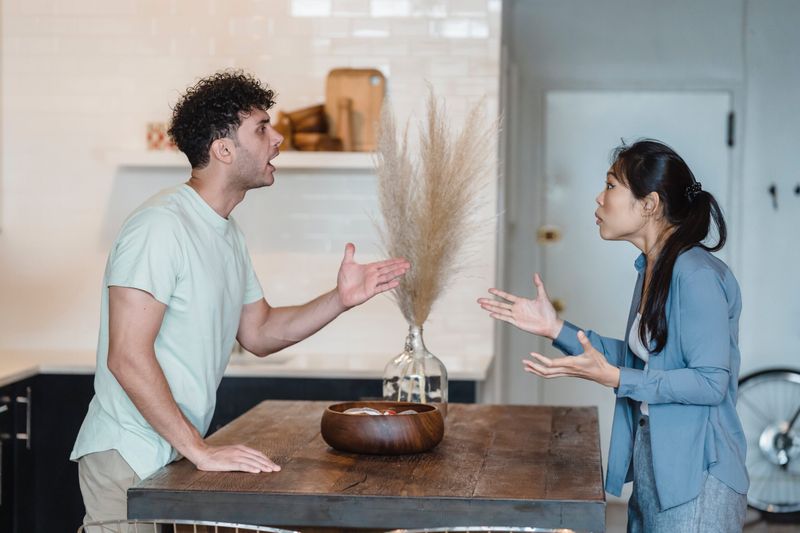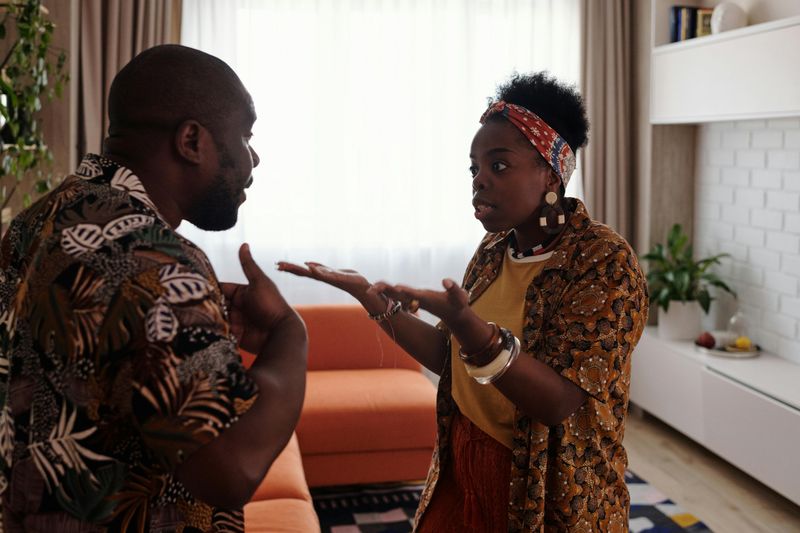In the intricate dance of relationships, words carry enormous weight. After decades of observing couples, certain phrases have emerged as significant indicators of underlying issues. While not every utterance of these phrases spells doom, they often signal deeper communication or emotional problems that need addressing. Understanding these red flags can lead to healthier, more fulfilling partnerships.
“You’re Overreacting”

When someone says, “You’re overreacting,” it can feel dismissive and invalidating. This phrase often signals a lack of empathy or understanding in a relationship. By labeling a partner’s feelings as exaggerated, it minimizes their emotional experience and discourages open communication.
Consider why these feelings are emerging instead of downplaying them. A relationship thrives on mutual respect and understanding, and recognizing each other’s emotions is crucial.
While not every instance of this phrase is ill-intentioned, frequent use might indicate deeper issues, such as avoidance of conflict or emotional unavailability. Addressing the root causes can foster a more supportive and emotionally safe partnership.
“I’m Fine”

“I’m fine” often masks unresolved emotions. This phrase might suggest avoidance of confrontation or difficulty in expressing true feelings. When one partner consistently uses these words, it can build a wall of miscommunication and misunderstanding.
In healthy relationships, openness is vital. Encouraging honest dialogues about concerns can prevent resentment and misinterpretations.
While sometimes used to avoid immediate conflict, habitual reliance on “I’m fine” can stunt emotional growth and intimacy. Encouraging vulnerability by sharing true sentiments helps build trust and depth in connections.
“You Always…”

The phrase “You always…” often introduces sweeping generalizations that can corner a partner into a defensive stance. Such statements are rarely true and tend to escalate conflicts.
Instead of focusing on specific grievances, this language paints a partner in a negative light, fostering resentment. Reflecting on patterns rather than blanket accusations can ease tension.
Addressing specific incidents allows for constructive conversations. It’s vital to focus on resolving issues rather than assigning blame, promoting a supportive and understanding environment in the relationship.
“Why Can’t You Be More Like…?”

Comparisons never bode well in relationships. Saying “Why can’t you be more like…?” undermines a partner’s individuality and can severely affect self-esteem. It implies a lack of appreciation for who they truly are.
In nurturing relationships, acceptance and appreciating unique traits are foundational. Seeking to change a partner through comparisons often leads to dissatisfaction and emotional distance.
Embracing differences and celebrating distinct qualities fosters love and appreciation. Relationships grow through understanding and valuing each other’s uniqueness.
“It’s Not a Big Deal”

Dismissing concerns with “It’s not a big deal” can feel invalidating. This phrase often shuts down conversations and makes a partner feel undervalued.
Acknowledging and discussing concerns, no matter how trivial they seem, is important in maintaining respect and connection.
When partners downplay issues, it can lead to frustration and a sense of disconnect. Understanding and addressing each concern shows empathy and strengthens the relationship bond.
“You Never Listen”

“You never listen” is a cry for attention and connection. This phrase indicates that a partner feels unheard and neglected, which can erode trust and intimacy over time.
When communication breaks down to this point, it’s essential to address listening skills and engagement in conversations.
Creating a space where both partners feel heard and valued can mend and strengthen relational bonds. Active listening fosters understanding and nurtures a deeper emotional connection.
“If You Really Loved Me, You Would…”

Manipulative language, such as “If you really loved me, you would…,” places conditional terms on love. This phrase can guilt a partner into actions against their wishes, leading to resentment and a power imbalance.
Healthy love is unconditional and respects boundaries. Partners should feel free to express themselves without emotional coercion.
Recognizing coercive language and working towards more constructive expressions of needs can enhance mutual respect and love.
“We Never Do Anything Fun Anymore”

Routine can dull relationships, and “We never do anything fun anymore” highlights a need for rejuvenation. This phrase often signals stagnation and a desire for shared enjoyment.
Reviving a relationship involves seeking new experiences together and rekindling the spark of excitement.
Finding mutual hobbies or planning adventures can invigorate the bond and add joy to shared life experiences. A proactive approach in seeking fun can transform monotony into cherished memories.
“I Can’t Stand Your Friends”

Criticizing a partner’s friends with “I can’t stand your friends” can create division and conflict. Friends often become an extension of one’s life, and such statements may be perceived as personal attacks.
Balancing relationship and social circles is crucial. Open discussions about social discomforts are more productive than outright rejection.
Encouraging dialogue about feelings towards friends can help navigate social dynamics without discord. Respecting each other’s social environments fosters harmony and understanding.

Comments
Loading…